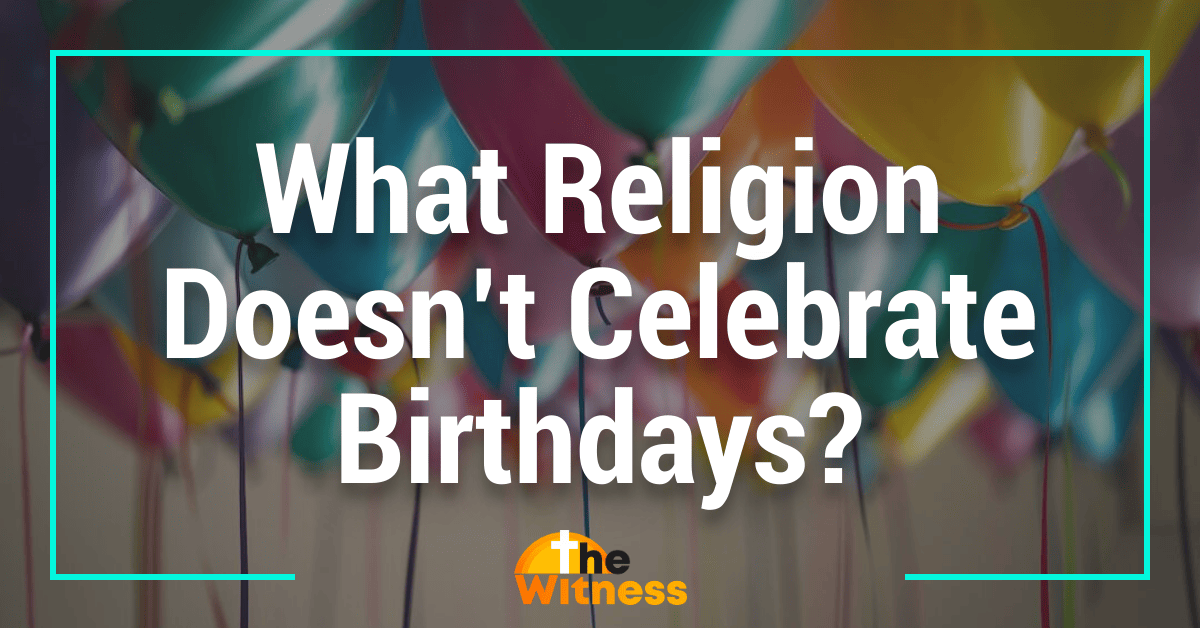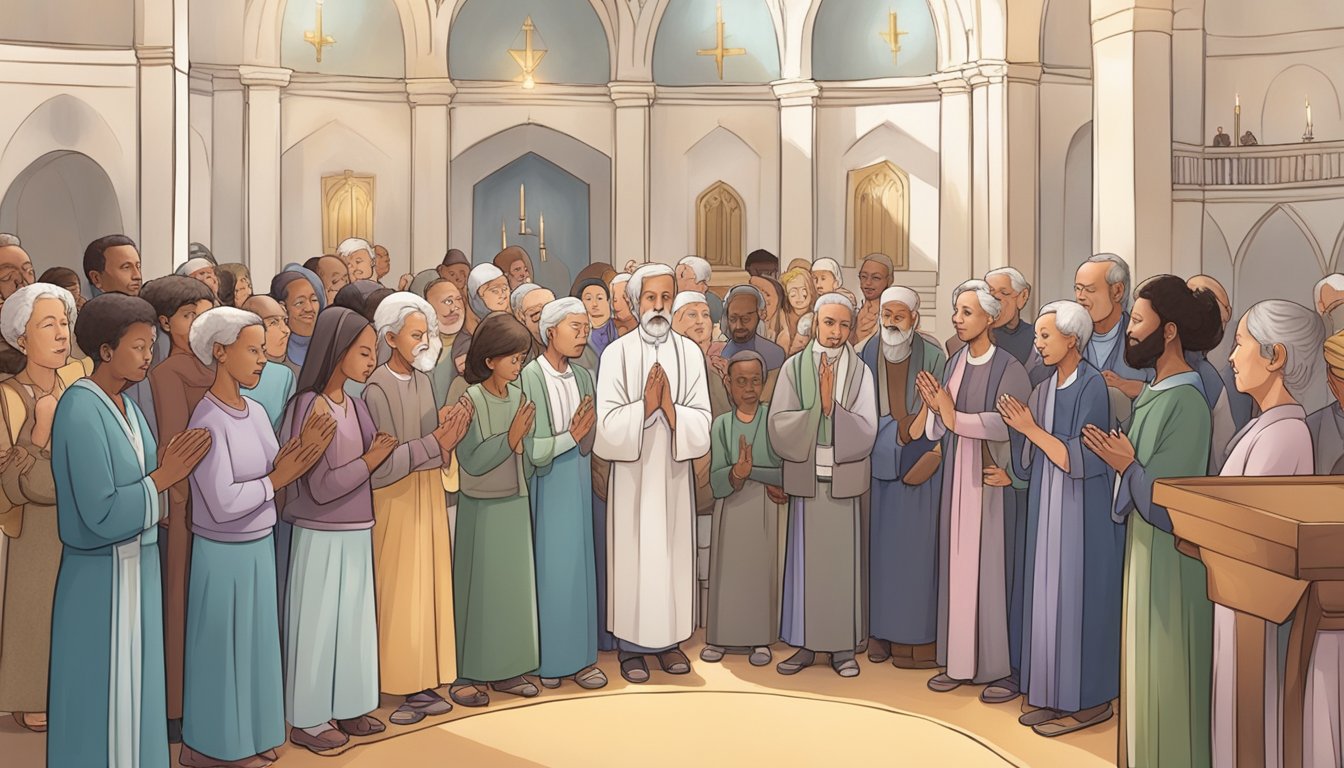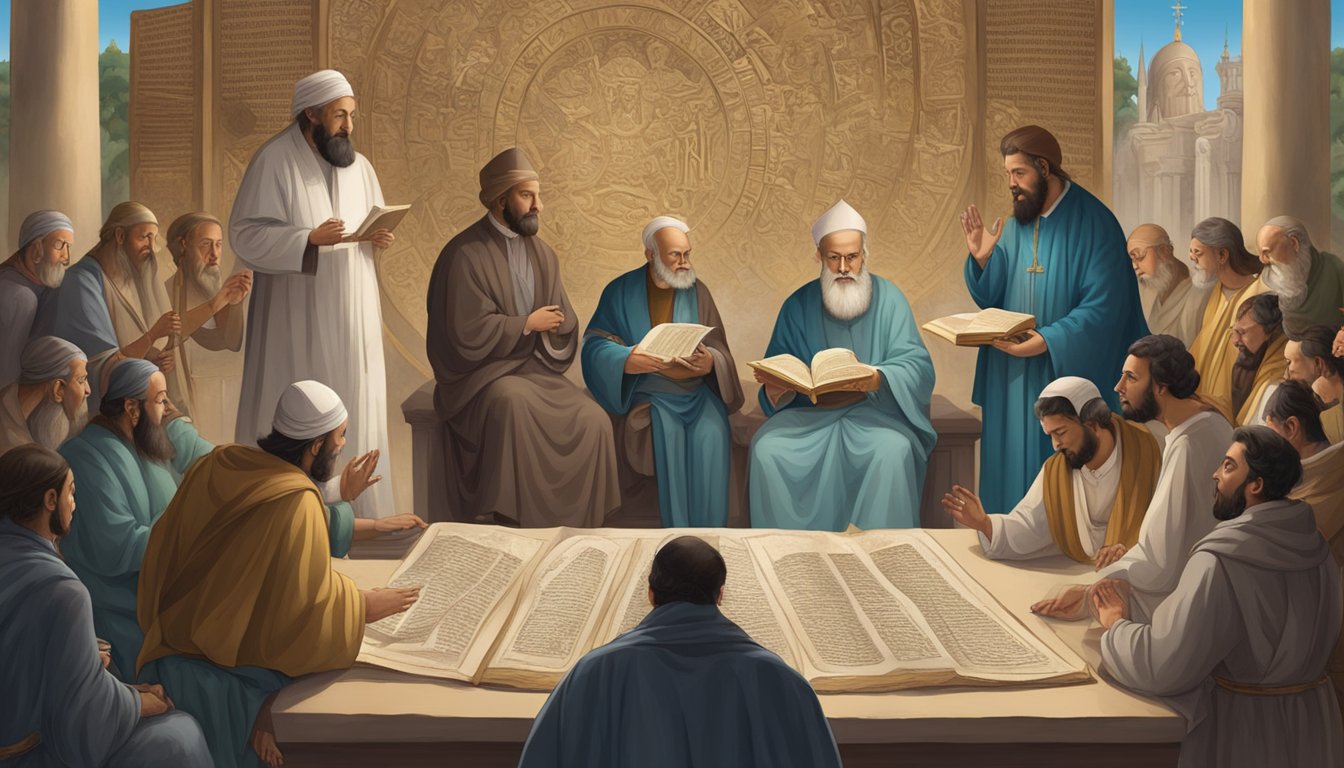Across various cultures and religions, birthdays are commonly marked with celebrations and expressions of joy. However, not all religious groups observe birthdays; some abstain due to their beliefs and teachings. Jehovah’s Witnesses are one such group known for their stance on this matter, believing that birthday parties are not in alignment with their faith. Their reasoning is rooted in biblical interpretations and a desire to maintain a certain separation from practices they consider to be pagan in origin.

What Religion Doesn’t Celebrate Birthdays?

While Jehova’s Witnesses are the most well-known for this practice, they are not the only group. Certain interpretations of Islam also lead some followers to prefer alternative ways to recognize personal milestones that do not involve the typical birthday celebrations seen in many other cultures. These varying stances on birthday observances reveal the complex ways in which religious beliefs intersect with cultural practices.
Key Takeaways
- Some religions do not celebrate birthdays, with Jehovah’s Witnesses being a primary example.
- The reasons for not celebrating can include interpretations of religious texts and a wish to avoid pagan traditions.
- Other faiths might approach birthdays differently, highlighting the diversity of religious practices and cultural customs.
Historical Context of Birthdays

In exploring the historical context of birthdays, it is crucial to consider the cultural and religious sentiments that have shaped their observance over time. Ancient civilizations’ practices and early Christian perspectives provide insight into how birthday celebrations have been regarded throughout history.
Origins of Birthday Celebrations

Birthday celebrations can trace their origins to ancient cultures where such festivities were often tied to pagan beliefs. The Greeks, for instance, believed that each person had a protective spirit that attended his or her birth, and this spirit had a mystical relationship with the god whose birthday coincided with the individual’s birth date. Celebrations often included making offerings to these spirits.
The Romans also celebrated birthdays for the general populace, as well as city-states and deities. These celebrations could include feasts and public games. Roman birthday celebrations were among the first to incorporate the use of candles, which were believed to carry prayers to the gods.
Interestingly, in the East, cultures such as Hinduism and Buddhism have their unique birthday-related traditions, often tied to religious and astrological significance.
Historical Views of Early Christians
Early Christians held various views on the celebration of birthdays. As Christianity spread, many leaders and theologians discouraged these festivities due to their pagan roots. A prominent view was that the day of one’s death was more significant than the day of birth, as it marked the entrance into eternal life.
Origen, an early Christian scholar, held that such celebrations were not fitting for the faithful. He maintained that saints and martyrs should be honored not on the days they were born, but on the days they departed this worldly life, believing that their ‘true’ birthdays were the days they died as martyrs for their faith.
Multiplicity in practices among different Christian denominations developed over time, with some eventually adopting the celebratory customs associated with birthdays, while others, like Jehovah’s Witnesses, continue to abstain, citing similar concerns over pagan origins of such traditions.
Religions and Birthday Celebrations
Many religions have different stances on birthday celebrations, stemming from their unique doctrines and historical contexts. These views range from complete abstention to selective observance based on religious beliefs and cultural practices.
Jehovah’s Witnesses Views
Jehovah’s Witnesses are known for their distinctive perspective on birthdays, seeing them as inconsistent with their faith. They ground their belief in the idea that birthday festivities have pagan origins and are not supported by Biblical narratives. References by the Watchtower Society advise members to refrain from participating in such celebrations, positing that such events displease God.
Islam and Birthdays
In Islam, the stance on celebrating birthdays can vary. While not a uniform belief, traditional Islamic teachings do not specifically endorse birthday celebrations, as they are not part of the religious traditions established by the Prophet Muhammad. However, opinions on the matter can differ, with some Muslims choosing to celebrate and others opting out, reflecting a diversity of practices within the faith.
Hinduism, Buddhism, and Judaism
Moving on to other major world religions, Hinduism, Buddhism, and Judaism showcase a spectrum of attitudes towards birthday celebrations:
- In Hinduism, birthdays are often marked by rituals and prayers, with a focus on spiritual well-being rather than lavish parties.
- Buddhism also places emphasis on spiritual reflection during birthdays, though the practice varies by culture and sect.
- Judaism has a rich tradition of celebrating milestones, including birthdays, with the recognition that each year of life is a blessing.

While these religions do not necessarily reject birthday celebrations, they integrate them in ways that are meaningful within their respective religious contexts and values.
Theological Reasonings

The examination of the theological basis for not celebrating birthdays in certain religions centers around interpretations of biblical scripture, the spiritual significance placed upon life events, and concerns over idolatry and inappropriate worship.
Biblical Interpretations
Interpretations of biblical passages such as those in Deuteronomy, Ecclesiastes, and Matthew influence the stance some religious groups take on birthday celebrations. For example, Jehovah’s Witnesses point to the absence of birthday celebrations among early Christians and negative birthday references in the Bible to substantiate their position. They particularly cite instances in the Bible where birthday celebrations are mentioned in unfavourable contexts.
Spiritual Significance and Reflection
The spiritual significance and personal reflection that some faiths promote often take precedence over the celebration of individual milestones. Rather than marking one’s birthday with revelry, some groups encourage reflection and spiritual growth. They may view life as a gift from God and believe that personal reflection, rather than festive celebration, aligns more closely with their spiritual objectives.
Idolatry and Worship
Concern over idolatry and the worship of individuals rather than God plays a pivotal role for some religions that shun birthdays. They may consider the elevation of an individual on their birthday as a form of idolatry, which is often regarded as a sin within these faith communities. Emphasizing the importance of worship directed only towards a divine entity, they maintain caution against diverting attention to human beings. This stance forms a significant part of their rationale for abstaining from birthday celebrations.
Cultural Perspectives and Practices

In cultures around the world, birthdays are acknowledged and celebrated in diverse ways, shaped by historical customs and religious beliefs. These practices reveal how different societies value the milestones of an individual’s life.
Global Cultural Traditions
« The Difference Between Christianity and Jehovah’s Witnesses: Key Beliefs Explained
Number of Christian Countries in the World: A Global Overview »
Many cultures have unique birthday traditions that reflect their heritage and societal values. In Vietnam, for instance, all birthdays are celebrated on Tet, the Vietnamese New Year, emphasizing family and togetherness. East Asian countries often celebrate a child’s first birthday with a ceremony called Dol or Zhuazhou, where various objects are presented to the child, symbolizing different future career paths. Some cultures, such as certain Christian denominations, abstain from celebrating birthdays based on historical beliefs tied to the religion’s focus on spiritual matters rather than worldly customs. For example, early Christians did not celebrate birthdays due to their ties with pagan rituals, a tradition that continues to influence some groups today.
Birthday Celebrations in the West
In Western cultures, birthdays are often marked with joyous celebration, regarded as significant occasions for family to gather and for children to be the center of attention. It’s traditional to have a birthday cake, often decorated with candles which the birthday individual gets to make a wish upon before blowing out. Gift-giving is another common practice, where friends and family members exchange gifts to show affection and commemorate the individual’s life milestones. In contrast to these celebratory norms, groups like Jehovah’s Witnesses abstain from birthday parties, based on their interpretation of Christianity which views such celebrations as displeasing to God.
Birthday Customs and Symbolism

Birthdays are marked by various traditions and symbols that carry cultural and historical significance. Often, these practices include the lighting of candles and the exchange of gifts, which have evolved from ancient customs with spiritual or magical connotations.
Cake and Candles
The tradition of adding candles to birthday cakes can be traced back to Pagan rituals, where candles were lit to evoke a sense of magic and divination. They believed that the smoke carried their prayers and wishes to the heavens. In modern birthday celebrations, each candle on the cake represents a year of the individual’s life, and the act of blowing them out is a lighthearted nod to these older beliefs, often accompanied by making a wish.
Gift-giving Practices

Gift-giving on birthdays is a practice with varied historical roots, including traditions of philanthropy and sharing one’s fortune. On a person’s birthday, gifts are commonly presented to show love, appreciation, or to honor the individual. This can be seen as a gesture of goodwill, with possible ties to historical customs that aimed to protect the birthday person from evil spirits through acts of kindness and the strengthening of social bonds.
Religious Observances Versus Birthdays
In exploring how different religions and sects view the celebrations of birthdays, one can notice a stark contrast with religious holidays. Some groups may find such celebrations at odds with their spiritual practices or doctrines.
Comparing Religious Holidays to Birthdays
Religious holidays such as Christmas and Easter are often central to a religion’s observance, serving to commemorate significant events with deep spiritual meaning. For example, Christmas marks the birth of Jesus Christ in Christianity, and Easter celebrates his resurrection. These occasions are typically observed with communal activities, worship services, and specific traditions that reinforce the faith’s values and narratives.
In contrast, birthdays are personal celebrations marking the anniversary of an individual’s birth. While widely accepted in many cultures, certain religious groups view birthdays as secular or self-centered, with no basis in their religious texts or traditions.
Christian Sects and Birthdays
Among Christian sects, there is a diversity of views regarding birthday celebrations. The Amish, for example, generally celebrate birthdays in a modest and understated manner, focusing on family and community rather than lavish parties. This simple approach aligns with their overall emphasis on humility and community values rather than individual attention.

On the other hand, Jehovah’s Witnesses abstain from birthday celebrations entirely, viewing them as having pagan origins and not supported by Biblical precedents. Similarly, Quakers (the Religious Society of Friends) traditionally avoid birthdays as part of their testimony against the excess and frivolity that can often accompany such celebrations.
Societal Aspects of Not Celebrating

Choosing not to celebrate birthdays can substantially affect family dynamics and an individual’s interaction within society, often reflecting a contrast to widespread cultural norms.
Family and Community Impact
Families who abstain from birthday celebrations may find these decisions influencing their relationships with others. For instance, members of religions such as Jehovah’s Witnesses often avoid these festivities due to their belief in the non-biblical origin of such practices, leading to a distinct separation from common social traditions. This can create a gap in understanding with family and friends who do celebrate, sometimes resulting in a feeling of exclusion or misunderstanding.
Community is another aspect that can be impacted by the choice not to celebrate personal milestones. In communities where birthday celebrations are a norm, the absence of these events for certain individuals can challenge community cohesion. The Amish, for example, emphasize community and humility over individualism, thereby choosing not to mark personal birthdays in a celebratory manner.
Personal Milestones and Society
An individual’s relationship with personal milestones can differ markedly when they do not celebrate birthdays. Society often recognizes birthdays as significant markers of aging and personal growth, but for those who abstain, alternative recognitions of personal achievements or significant life events may take precedence. This deviation from societal expectations can relieve the pressure to conform to conventional celebrations while also promoting a focus on collective achievements within their cultural or religious communities.

Avoiding birthday celebrations can also alleviate the societal pressure to host events or to adhere to the commercial aspect that has become associated with birthdays. This can lead to a simpler lifestyle with different priorities that are not tied to the expectations of social norms regarding personal milestones.
Alternative Views on Birthdays
In certain traditions and belief systems, birthdays are perceived differently than the common celebratory events. These perspectives often emphasize values like humility and personal growth over customary festive gatherings.
Personal Preference and Humility
Some individuals choose to approach birthdays with personal preference for modesty. They might view a birthday not as a chance for self-promotion, but as a day for reflection. The practice of humility is central in this context, where the focus is put on being thankful for life’s blessings rather than the glorification of the self.
Goals and Celebrations Beyond Birthdays
Others might redirect the attention typically given to birthdays towards celebrating personal goals or milestones achieved throughout the year. Here, the emphasis is on one’s accomplishments and character development, which are seen as a gift from God or a testament to the attainment of a good name. The idea is that by honoring these milestones, they are acknowledging life’s journey rather than just the annual marker of becoming a year older.
Controversial Aspects of Birthdays
While birthdays are widely celebrated as happy occasions, there are elements of these celebrations that stir controversy among various groups.
Superstition and Magic

Historically, birthdays have been associated with superstition and the belief in magic. It’s thought that evil forces were more active on a person’s birthday, which led to the custom of being surrounded by friends and family to protect against evil spirits. This connection to paganism and the idea that special rituals or actions could ward off harm has made some religious groups apprehensive about birthday celebrations.
Exclusion and Peer Pressure
Another contentious issue is the pressure that birthday celebrations can exert on individuals and families. Organizing a party often comes with social expectations, which can lead to feelings of exclusion for those not invited or shunned due to religious beliefs. The desire to fit in and peer pressure to throw a grand celebration can also lead to emotional stress and financial strain.
Modern Practices and Adaptations

In today’s diverse society, the decision to celebrate or not celebrate a birthday can reflect a blend of personal, religious, and cultural convictions. While birthday celebrations are commonplace in many parts of the world, some individuals and religious groups choose to forgo this tradition, often out of a desire to maintain certain religious values or to avoid what they see as worldly distractions.
Secular Versus Religious Celebrations
Secular birthday celebrations often feature parties, gifts, and cakes, marking the day as a special occasion in an individual’s life. However, for religious groups such as Jehovah’s Witnesses, birthdays are not celebrated because they are viewed as having pagan origins that conflict with their beliefs. Instead, these groups focus on religious events and rites of passage deemed more significant within their faith. The emphasis is on spiritual development rather than individual glorification, which they believe adheres closer to their scriptural interpretations.
Notable Aspects:
- Secular: Cake, gifts, social gatherings
- Religious: Spiritual milestones, community service, faith rituals
Choosing Not to Celebrate

For some, the choice not to celebrate birthdays stems from a commitment to living a life that minimizes distractions and focuses on family and religious values. This decision is respected within their communities and can strengthen familial bonds without the pressure of planning or attending large festivities. For example, the Amish and certain Muslim communities may limit birthday celebrations, viewing them as an unnecessary distraction from family and religious duties.
Key Considerations:
- Family: Emphasis on quality time, community, and simplicity
- Distraction: Avoidance of extravagance and self-centeredness
Frequently Asked Questions

In this section, you can explore some commonly asked questions about the practices of different religious groups regarding birthday celebrations and how they mark personal milestones.
Which religious groups abstain from celebrating birthdays?
Certain religious groups, including Jehovah’s Witnesses and some branches of Islam, traditionally abstain from celebrating birthdays. They often cite religious reasons and historical context for this practice.
What are the reasons Jehovah’s Witnesses do not observe birthdays?
Jehovah’s Witnesses do not celebrate birthdays because they believe that such celebrations displease God. This belief is based on their interpretation of biblical texts and the example set by early Christians.
How do people in certain cultures or religions mark personal milestones without birthdays?

Some cultures and religious communities may choose to honor personal milestones by emphasizing spiritual accomplishments or rites of passage rather than observing a traditional birthday celebration.
What holidays do Jehovah’s Witnesses observe, if any?
Jehovah’s Witnesses do not celebrate most holidays commonly observed in other cultures, including birthdays and Christmas. However, they do observe the Memorial of Christ’s death, which they consider to be of great significance.
In what ways do Muslims approach the celebration of personal milestones?
Muslims may celebrate personal milestones such as the completion of reading the Quran or successful completion of the Hajj. These events are often marked with community prayer and acts of charity rather than personal celebrations.
How do Jehovah’s Witnesses commemorate significant events without traditional holidays?
Without traditional holidays, Jehovah’s Witnesses often commemorate significant events in their faith, such as baptism, through modest gatherings, spiritual reaffirmation, and acts of service within their community.










